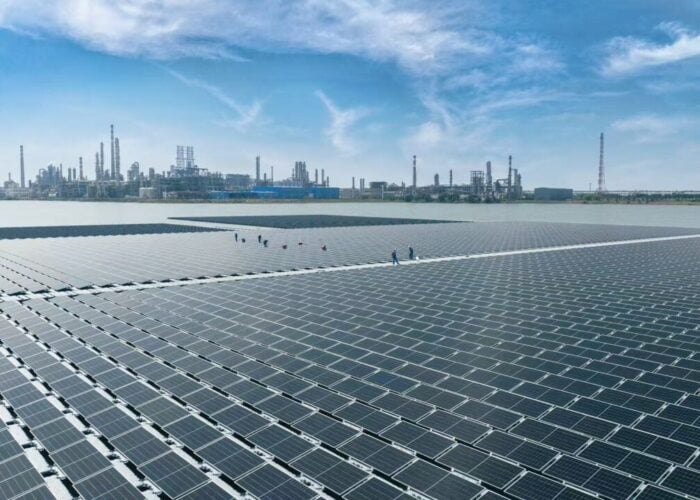
Chinese ambassador to South Africa Chen Xiaodong has offered to provide the South African grid with 66GW of solar infrastructure, to help the country stabilise its energy grid.
Chen made the announcement during the China-South Africa New Energy Investment and Cooperation Conference held in Sandton, northern Johannesburg. The ambassador also noted that China would provide both materials and machinery and skilled workers to aid in the development of South Africa’s energy grid, which has struggled to meet electricity demand under state-operated energy utility Eskom, prompting interest in forms of power generation such as solar.
Unlock unlimited access for 12 whole months of distinctive global analysis
Photovoltaics International is now included.
- Regular insight and analysis of the industry’s biggest developments
- In-depth interviews with the industry’s leading figures
- Unlimited digital access to the PV Tech Power journal catalogue
- Unlimited digital access to the Photovoltaics International journal catalogue
- Access to more than 1,000 technical papers
- Discounts on Solar Media’s portfolio of events, in-person and virtual
“Advanced cooperation in technical training, and improved professional capacity,” said Chen at the conference. “It is a pleasure to see that the China Energy Investment Corporation has already been in communication with Eskom. China’s state grid will also send a team to experts to South Africa very soon to provide technical advice.
“At present, even though South Africa is experiencing unprecedent challenges of power shortage, we are glad to see that relevant efforts are seeing quite positive effects. As South Africa’s good brother, good friend and good partner, China [is] very much ready for the challenge here and we are ready to provide support to South Africa using our capacity.”
Decarbonising South African energy
The prospect of China providing expertise to help South Africa’s energy grid will be of particular interest, as this grid has struggled considerably to meet South Africa’s power demands in recent months. In May, Eskom acting chief executive Calib Cassim told South Africans to prepare for “a difficult winter”, as the company expects blackouts to intensify in a country where power is unavailable for up to 12 hours every 32 hours.
Much of this stems from South Africa’s desire to decarbonise its energy mix, and a failure to provide renewable alternatives to the country’s dominant fossil fuels sector. At COP21, South Africa announced plans to close seven of its 15 coal plants by 2030 in a bid to decarbonise its energy mix, but questions remain as to how Eksom will account for this shortfall in electricity production.
According to the International Energy Agency (IEA), coal power accounted for around 70% of South Africa’s energy output in 2020, providing just over one million gigawatt hours, compared to just over 15,000GWh from all renewable sources.
While there are some positive developments in South African solar power in particular – notably the conversion of retired coal plant Komati into a 150MW solar facility, and the installation of US$119.2 million (ZAR2.2 billion) of rooftop domestic solar in the first five months of 2022 – the fundamental imbalance of South Africa’s power sector has contributed to a significant decline in the country’s overall electricity generation.
Based on figures from Hong Kong-based analysts CEIC, South Africa’s electricity production fell from from 23,801GWh in July 2007 to a low of 16,709GWh in February 2023, before a slight rebound to 19,107GWh the following month.
Delivering a just transition
Yet simply moving large quantities of solar panels from China to South Africa will not immediately solve this problem, and South African minister of public enterprises Pravin Gordhan was eager to point out the importance of the human and social aspects of the energy transition.
“The world is, indeed, as has been pointed out, undergoing very fast changes, as far as the energy situation is concerned,” said Gordhan at the Johannesburg conference. “However, as those changes take place, we need to be very mindful of, not just the ‘energy’ part of the energy transition, but also the ‘just’ part of the energy transition. That is something that I saw in China a few weeks ago, where, at least on the logistics side, but on the energy side as well, too many operations were happening without any human beings inside.
“This is something that South Africans and Africans need to be exposed to, that one of the consequences of the kind of transition we are undergoing is the impact on workers, the impact on current businesses, and the manner in which we manage the ‘just’ part of the just energy transition,” added Gordhan. “Our first opportunity in South Africa is as we undergo those changes at the Komati Power Station, but subsequently others as well.”







